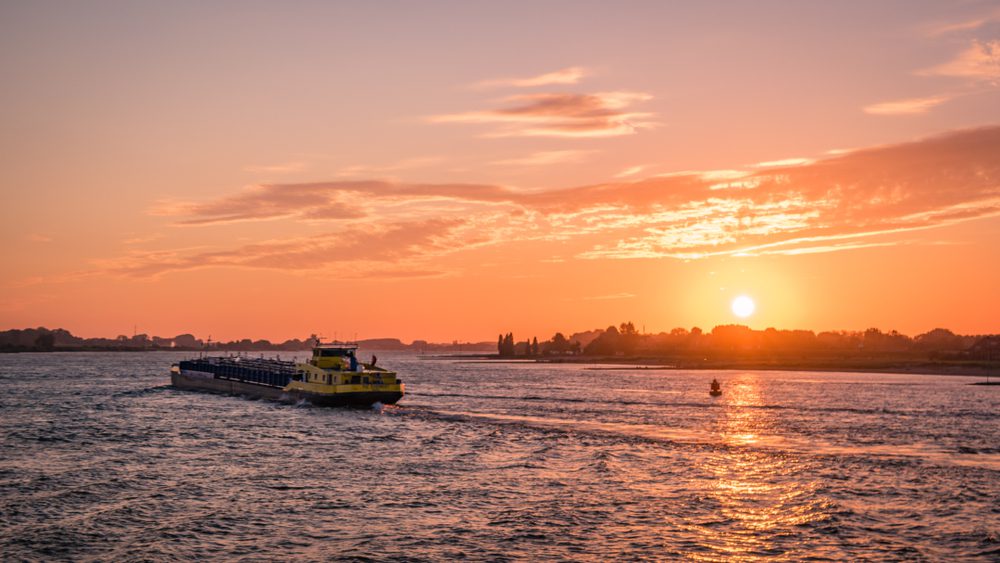Low River Levels May Deepen Europe’s Energy Crunch
By Todd Gillespie (Bloomberg) Water levels on Europe’s Rhine River are again dwindling — and this time it’s at the risk of the continent’s efforts to boost its energy security....

By Rachel Graham (Bloomberg) Eastern Germany is resorting to getting barge loads of fuel all the way from the North Sea oil port of Rotterdam as the nation pivots away from Russian supplies.
Fuels used to help make gasoline are being sent from the Dutch trading hub up the Rhine river and then into Germany’s sprawling network of canals as far as Berlin. Such voyages, a distance of 500 miles and about a week’s sailing, would previously have been rare because of the distance and cost involved.
The shipments are just the latest example of how Russia’s invasion of Ukraine has shaken up Germany’s energy-distribution network — just as the river is getting drier and harder to navigate. About 550,000 barrels a day of mineral oil products were transported on the Rhine in 2020.
“Product is now moving further inland than normal from Rotterdam,” said Lars van Wageningen, operations manager of Insights Global, a consultants based in the Netherlands.
Also Read: Low River Levels May Deepen Europe’s Energy Crunch
Diesel has also been shipped from Rotterdam to storage in east Germany by barge in recent weeks, partly because seaborne deliveries would previously have come from Russia via Hamburg and those have halted, according to traders.
Either directly or through adjoining canals and waterways, the Rhine river connects Amsterdam, Rotterdam and Antwerp , the beating heart of Europe’s oil trading known as ARA, with swaths of Germany and beyond.
Barges can get all the way to Berlin in the northeast, to Austria and Switzerland to the south, and even to the Black Sea.
German authorities are looking at the viability of increasing shipments of fuel by barge to Berlin and Magdeburg, a storage hub west of the capital, according to a person familiar with the matter.
That’s in case of reduced fuels supply from the Schwedt and Leuna oil refineries that serve the region and can’t easily switch away from processing Russian crude, the person said.
Germany’s transport ministry wasn’t immediately available for comment. The country’s economy ministry declined to comment.
Austria is taking more fuel by barge too. There has been a spate of disruption at refineries in southeast Germany and Austria in the past few weeks, which has increased the volume of fuel being shipped there via the Rhine and then the Danube.
Vienna is short of fuel following an extended outage at Austria’s only oil refinery, the Schwechat plant operated by OMV AG.
Across the German border in Bavaria, two out of three refineries haven’t been producing fuels as normal this month while in Hungary also suffered an unplanned outage in June after a fire.
“We have seen a number of inquiries for supply of diesel and gasoline from the Rhine to Vienna,” said Joachim Hessler, who runs Maintank Schiffahrtsgesellschaft mbH, which has vessels on the Rhine.
Rhine shipments may get trickier. The river has the lowest water clearance levels at the key navigation point of Kaub since at least 2007, according to German federal data. That means barges, already only part full, may have to carry even less if the river dries out further in the coming summer months.
By Rachel Graham. With assistance from Birgit Jennen © 2022 Bloomberg L.P.
This article contains reporting from Bloomberg, published under license.

Sign up for gCaptain’s newsletter and never miss an update

Subscribe to gCaptain Daily and stay informed with the latest global maritime and offshore news
Essential news coupled with the finest maritime content sourced from across the globe.
Sign Up